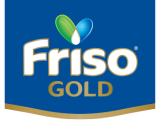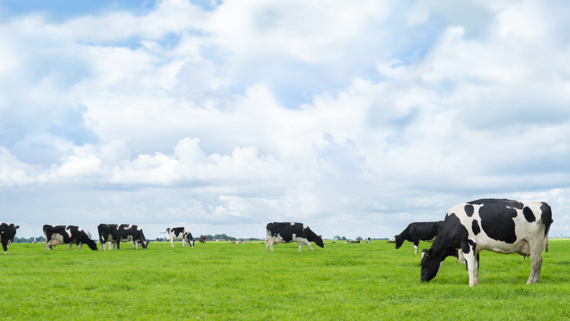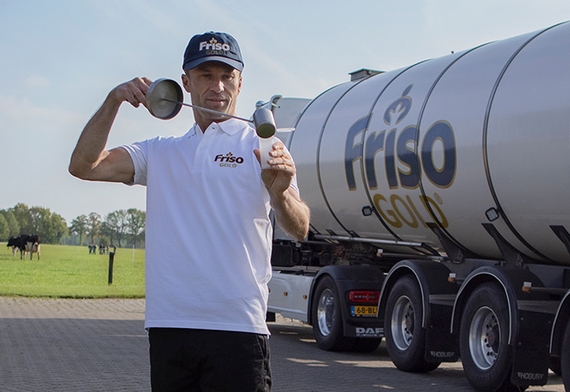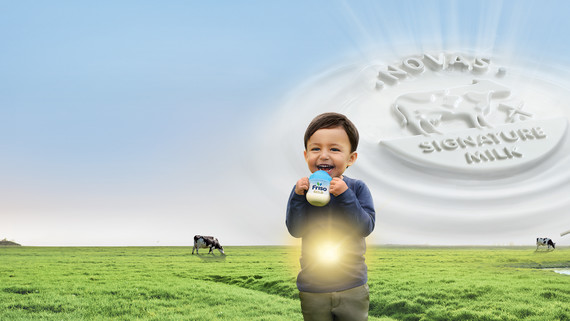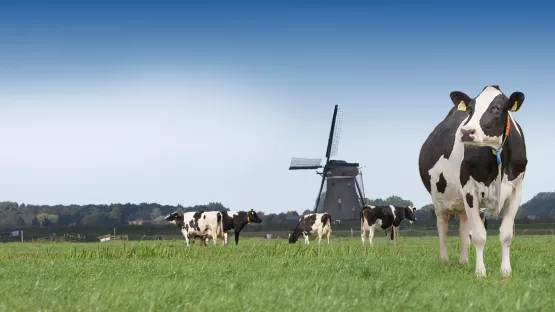
Holland farms: The home of high quality milk
The Netherlands is a relatively small and flat country in Northwestern Europe. Home to 16 million people, it's one of Europe's most densely populated nations. Cycling is the most popular way of getting around this planar country of 12 provinces.
Most tourists who visit look forward to snapping photos of picturesque Dutch tulips in bloom, windmills and cheese1. However, few are aware that Holland is the world's second largest exporter of food and agricultural products. It's even been dubbed the 'country of farms'2! A third of the land is reserved for farms, of which there are 18,000 dairy farms with a total of 1.6 million cows that produce up to 12.7 billion kilogrammes of milk each year3. Holland's farms and dairy companies have to adhere to hygienic and ethical farming practices. Friso® Gold is made with Novas™ Signature Milk, which is sourced from our Holland owned farms.
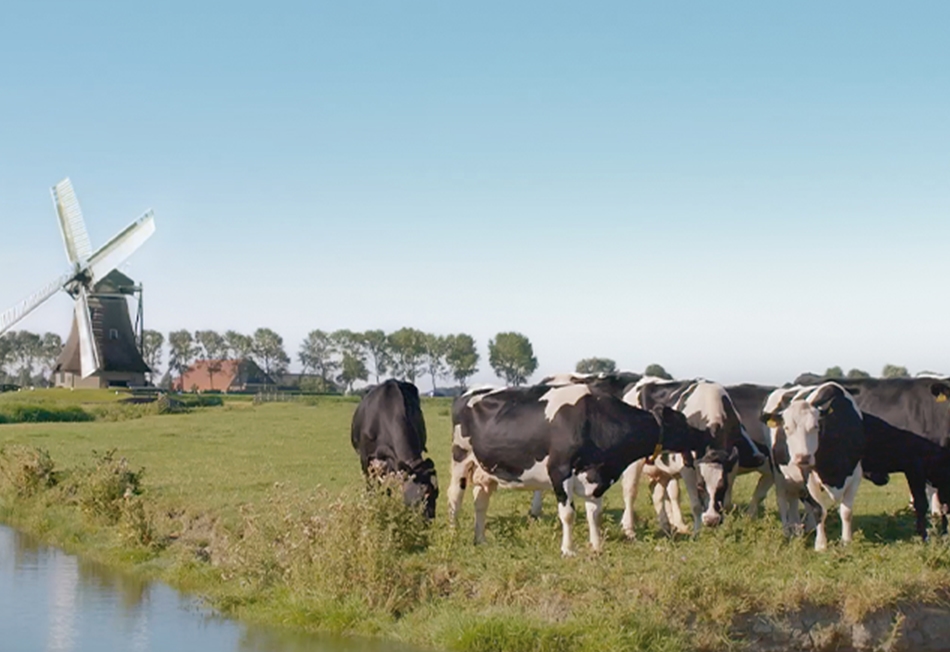
Green grass and blue skies: The beauty of Holland farms
Constantly looking to improve through innovations in sustainability and quality3, it's no surprise that Holland's dairy industry is a key segment of the economy. Blessed with a mild climate, this agrarian country has an abundance of fertile land.
A typical Dutch farm is very modern, with a long driveway leading to the barn and the living quarters, surrounded by green pasture. There, cows graze in the open and move freely from one pasture to the next searching for fresher, younger grass. If they get thirsty, they stroll to the nearest stream for a drink.
Holland dairy farmers: Turning passion into profession
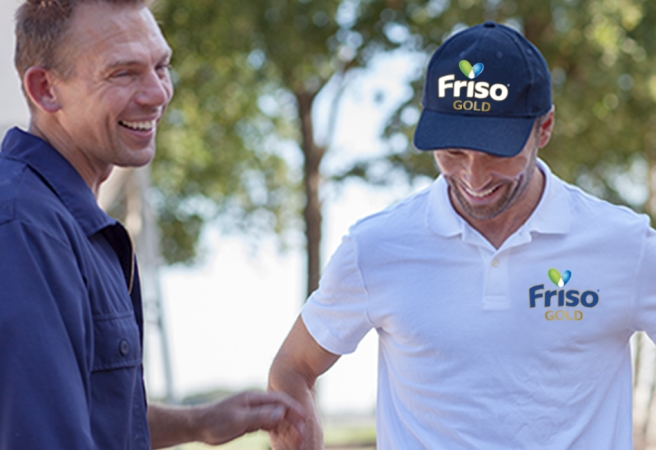
A cooperative model: Farmers are in charge
The cooperative model means that the people who know the most about milk are the ones in charge of making it that means the farmers. The dairy cooperative wholly owns the dairy company, which purchases the milk from dairy farmers and then optimises and processes it into a broad range of dairy products. The dairy company also takes care of all market related aspects, which allows members of the cooperative to be free to concentrate on their real passion – producing nutritious, high quality milk.
Independent entrepreneurs in their own right, Dutch dairy farmers are happy to share information and expertise on dairy farming , which illustrates the virtuous cycle of this industry. Their expertise and level of professionalism helps dairy companies guarantee both quality and safety.
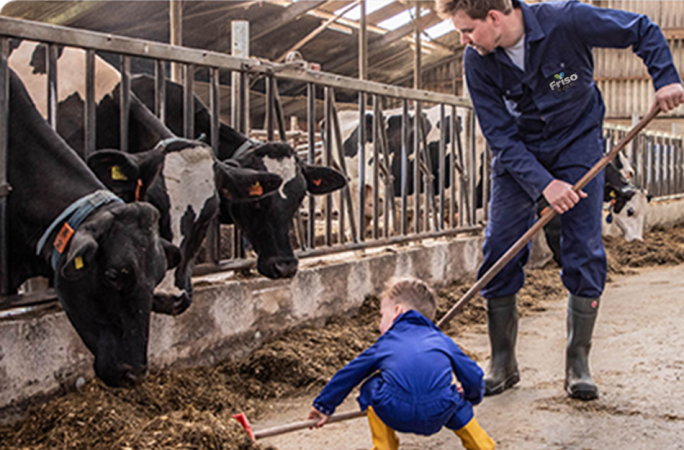
Multi generational farms: Passing down farming wisdom
Farming is in the blood of Dutch dairy farmers. They show the utmost respect to heritage, passing down expertise that has been refined by their parents and grandparents. Not only does this keep farming practices the same within the family, it actually constantly improves it. Each generation enriches this pool of knowledge, which ranges from knowing how to select the best cows to using technology most suited for each job. It's not unusual to see third or fourth generation dairy farmers in the Netherlands who are as passionate as their predecessors.
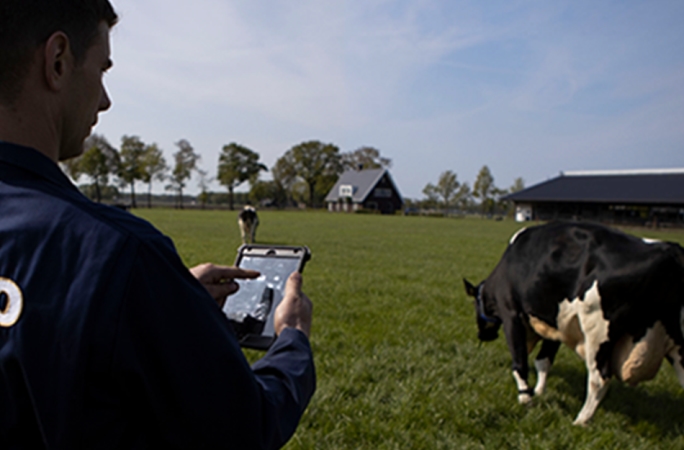
Embracing technology: Understanding cows better
Generations old methods have their benefits but the added spark from technology makes them even greater. The old and new work side by side to find the most efficient way to milk cows, monitor their health and manage the farm via a tracking system.
For example, automated milking robots allow cows to choose when they want to be milked. The robots track their milk production and understand the milking routine, ensuring optimal milking volume for cows. From the data of milk composition, farmers then customise the feed to ensure optimum nutrition for each cow. All data collected is unique to each cow and can be accessed from its electronic collar then viewed from the farmers' phones. As a result, farmers can promptly understand the cows' condition and react accordingly.
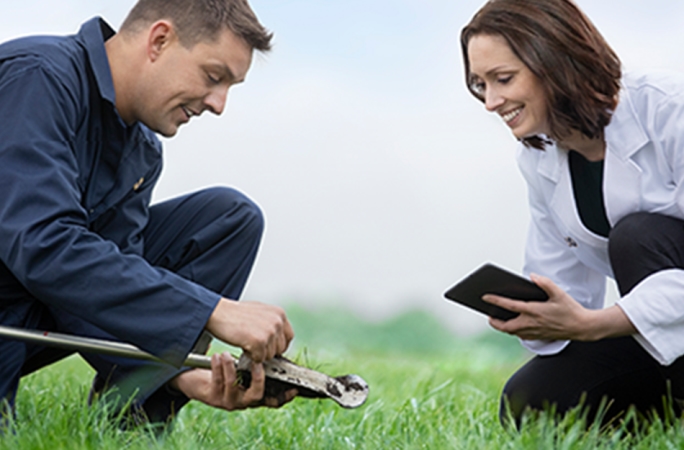
Sustainability: Preparing for the future ahead
To ensure that Holland's farms can produce quality milk for many years to come, everyone from the government to consumers work together. The land is kept as healthy as possible with low impact farming practices, and diverse native flora and fauna. Farmers also actively work towards reducing the use of energy, greenhouse gas emissions (via manure) and mineral emissions8.
This way, the pastures remain healthy for a long time to support the cows and their descendants that graze on them. Part of the upkeep also includes taking care of the cows. The animals are constantly monitored and get regular visits from veterinarians who make sure they’re in nothing less than tip-top condition.
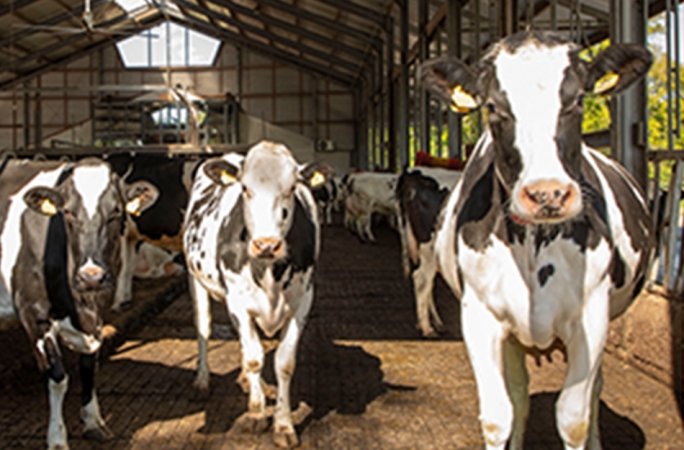
Round the clock care
Dairy farmers live close to the farms so that it’s easier to tend to their cows. Typically, the gentle animals are milked twice a day; early in the morning and again after they’ve been let out to graze if the weather is good. Some farmers even give their cows names and treat them like members of the family! Sometimes, farmers witness key events in the lives of the cows, such as birthing emergencies, where they will step in to act as midwives during the birth of the calf.
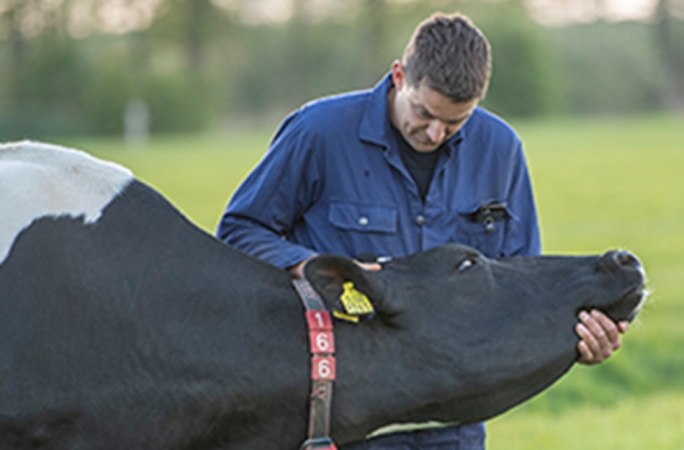
Living in comfort
The comfort of the animal always comes first and farmers go above and beyond to make that happen. In the shed, the humidity and temperature are kept at optimal levels as they rest. There are even scratching posts along the side of the barn and massage machines that help the cows relax for a better milking experience, and you'll often see cows comically rolling and brushing themselves against them.
Every day, they graze outside for more than six hours within an area of 5,000 square metres – a large expanse for them to stretch their legs. When it comes to milking time, you’ll even see the cows lining up because farmers play music and place treats in front of the milking robot. All of these ensure that the cows are relaxed and comfortable, so that they can focus on producing nutritious quality milk
The result: Naturally nutritious milk
The toil, passion and commitment put in by the dairy farmers yield results that speak for themselves: Holland’s farms produce quality, highly nutritious milk. It’s this combination of genuine care that farmers have for the cows and land, tech savvy and rich heritage that go into yielding quality milk .
Reference:
- Traditional Dutch icons
- The Dutch dairy industry is a leading economic sector
- Agriculture and food
- FrieslandCampina The cooperative and the company
- Cooperative and farmers
- Multigenerational Farming: Why It Works
- Sustainable dairy farming
